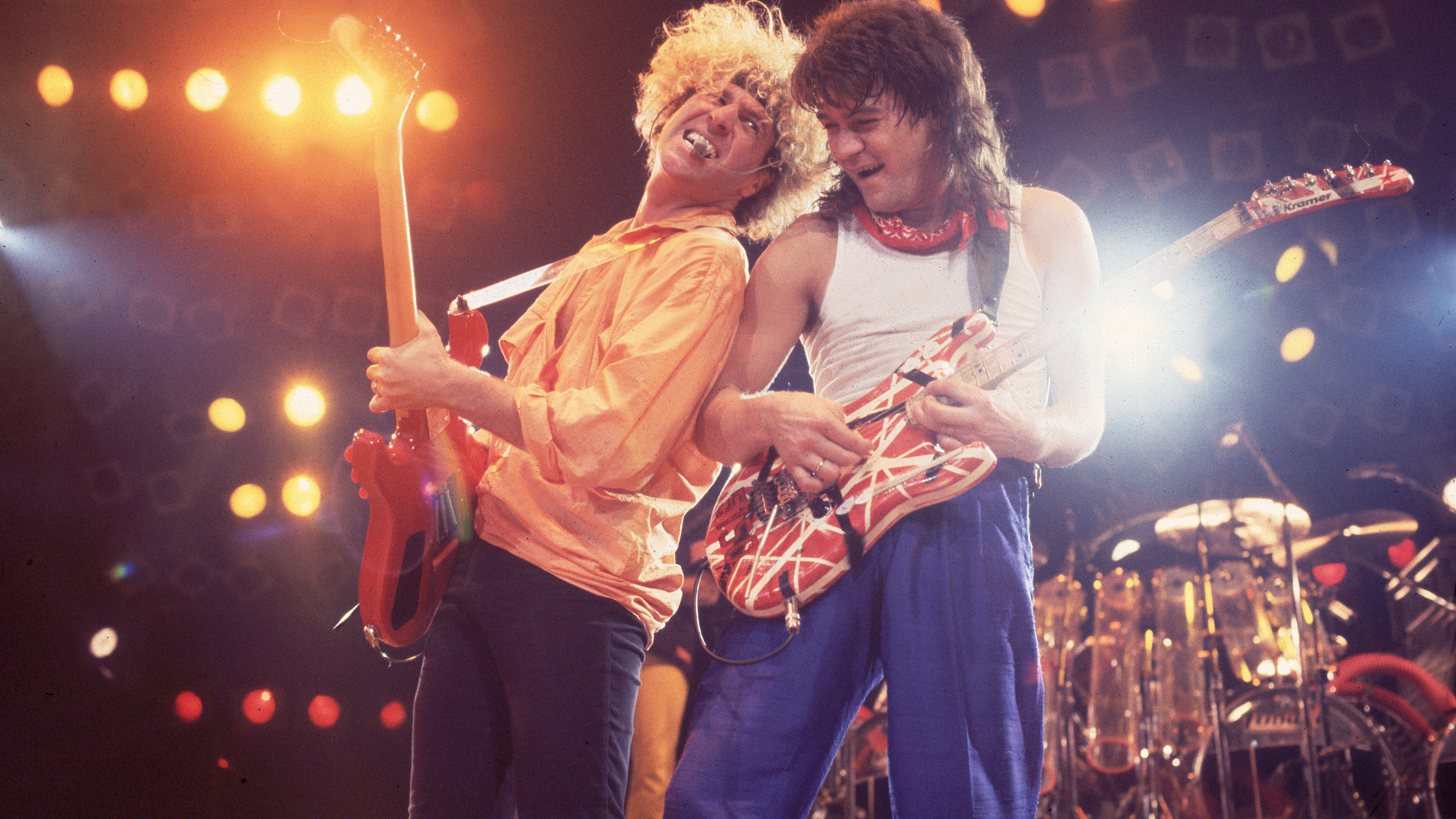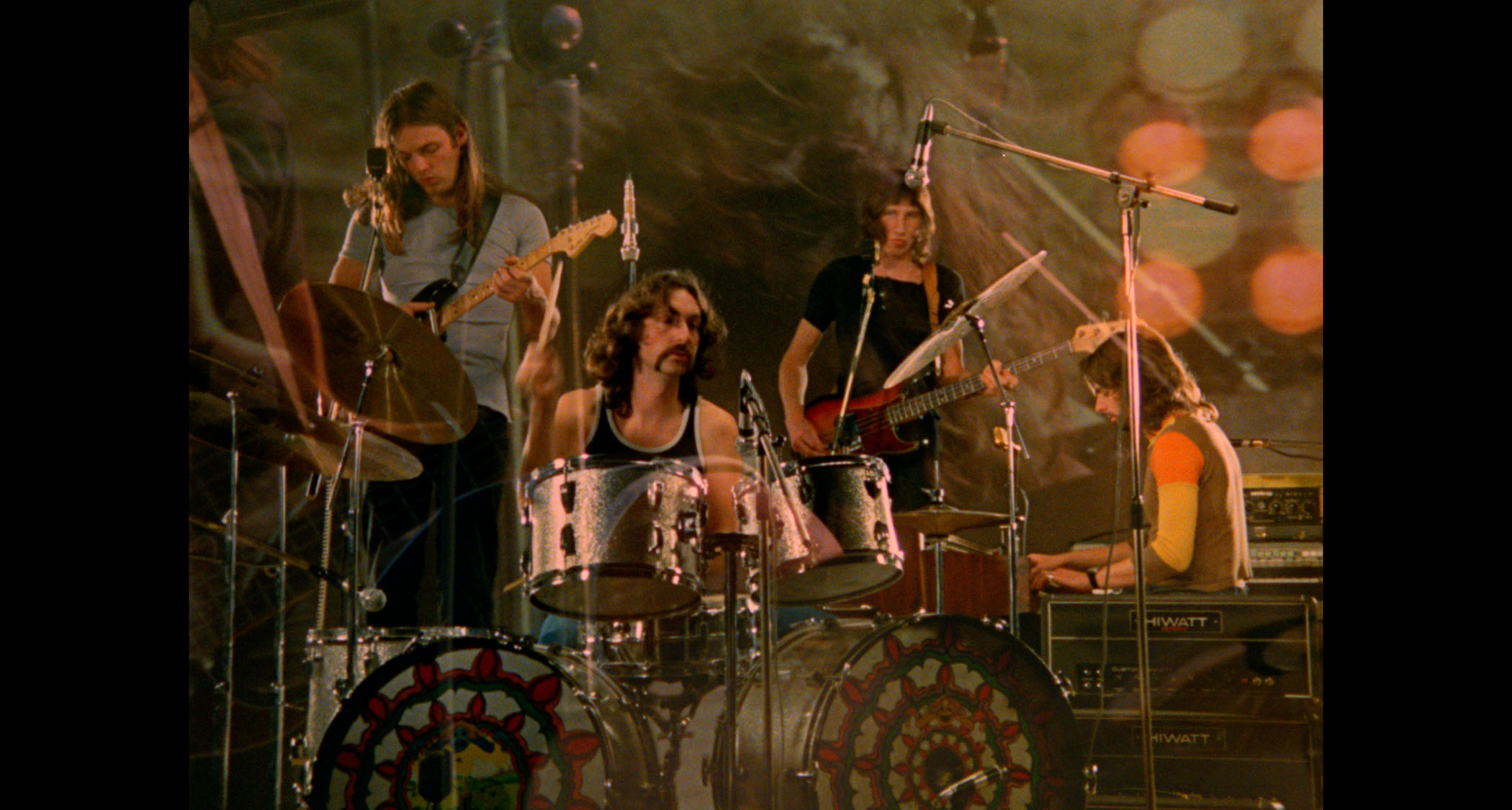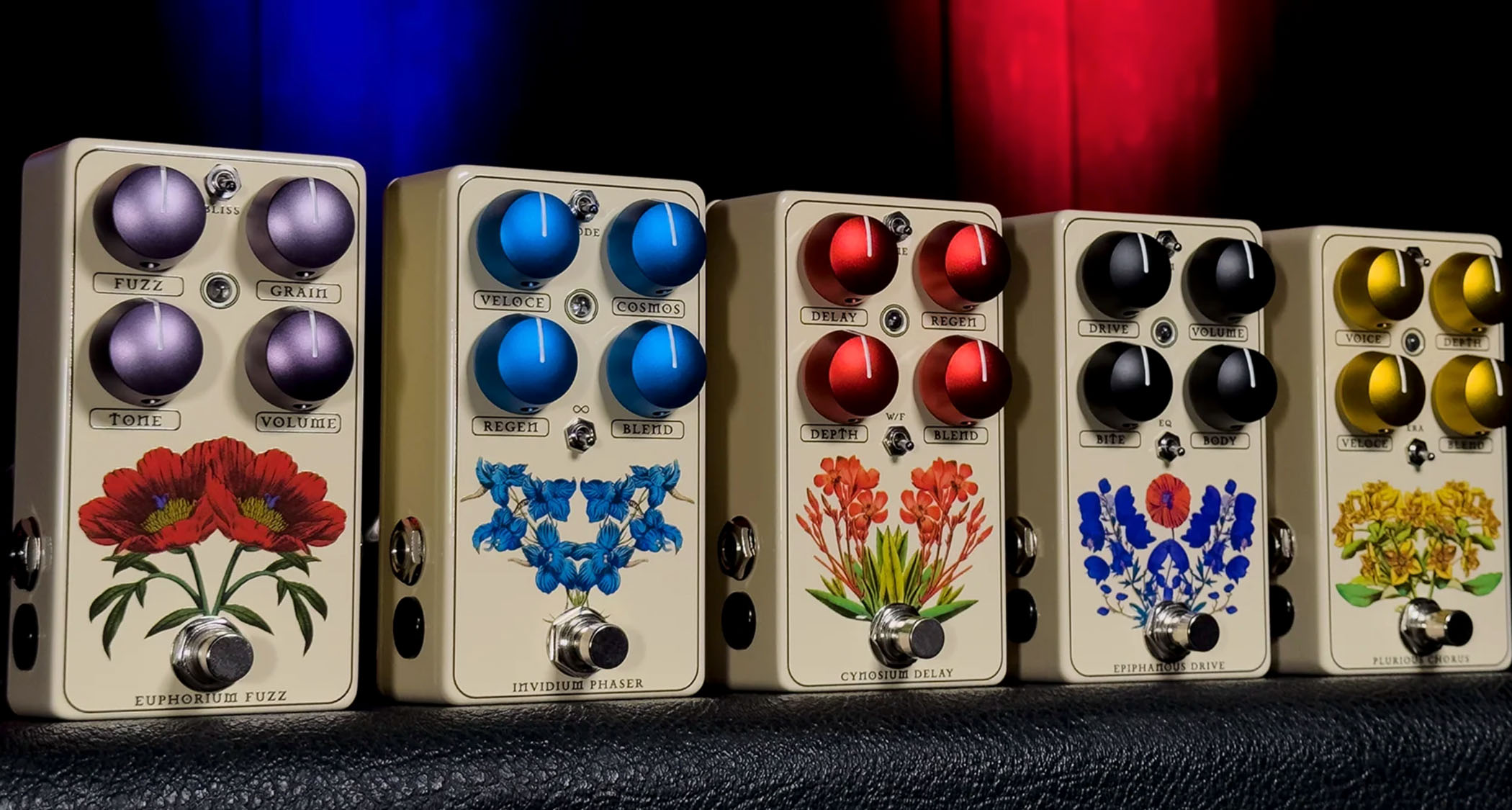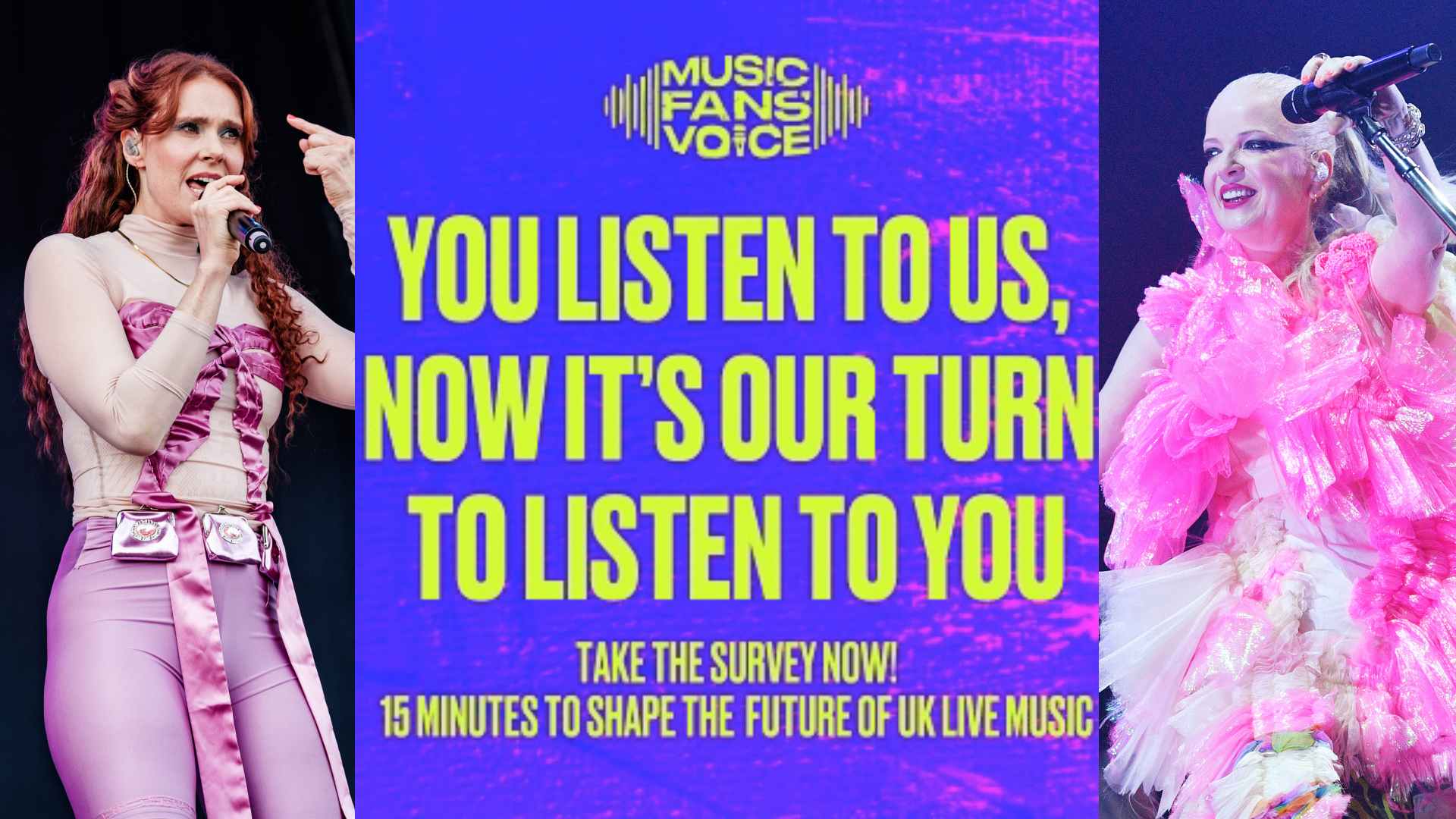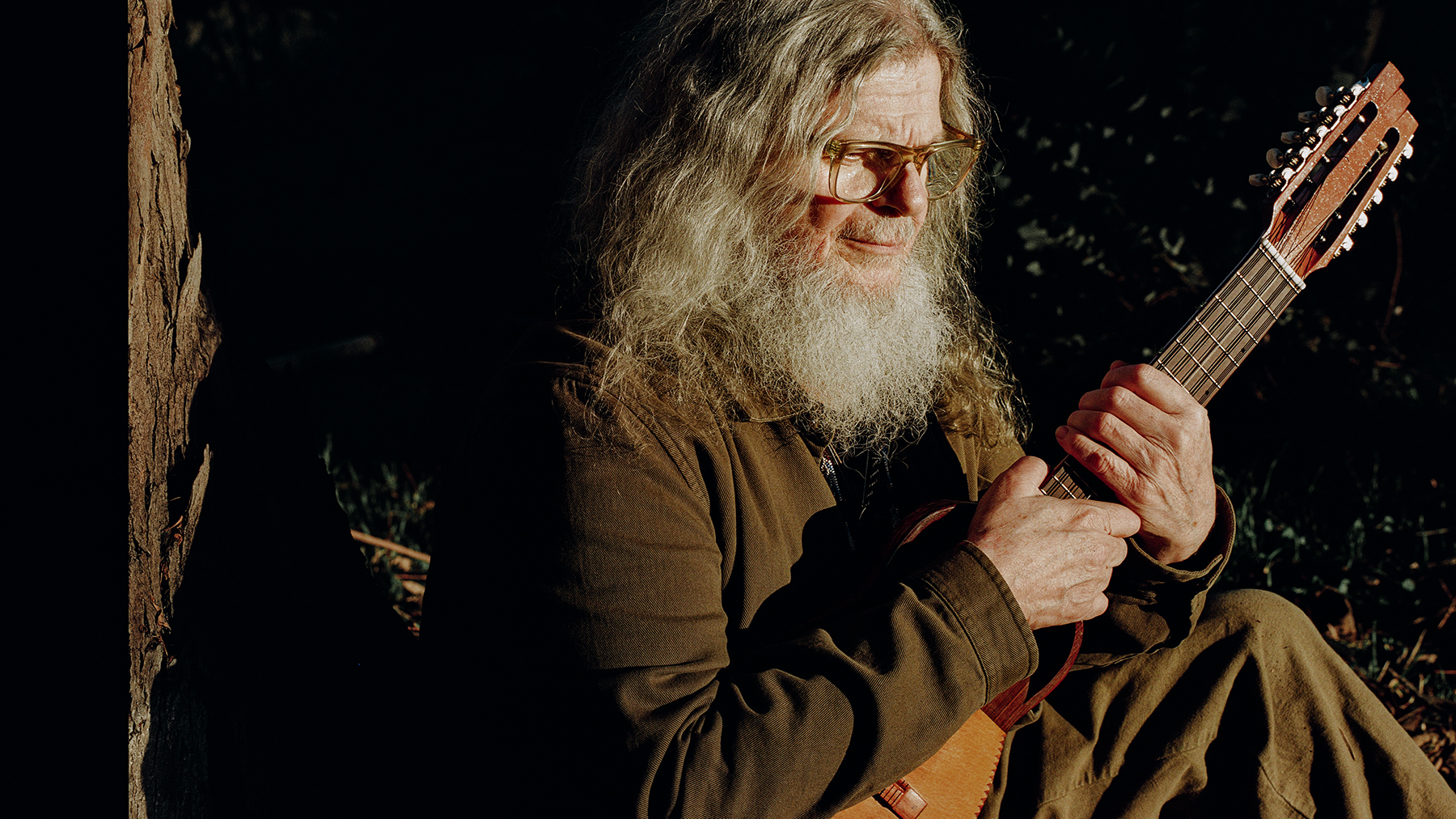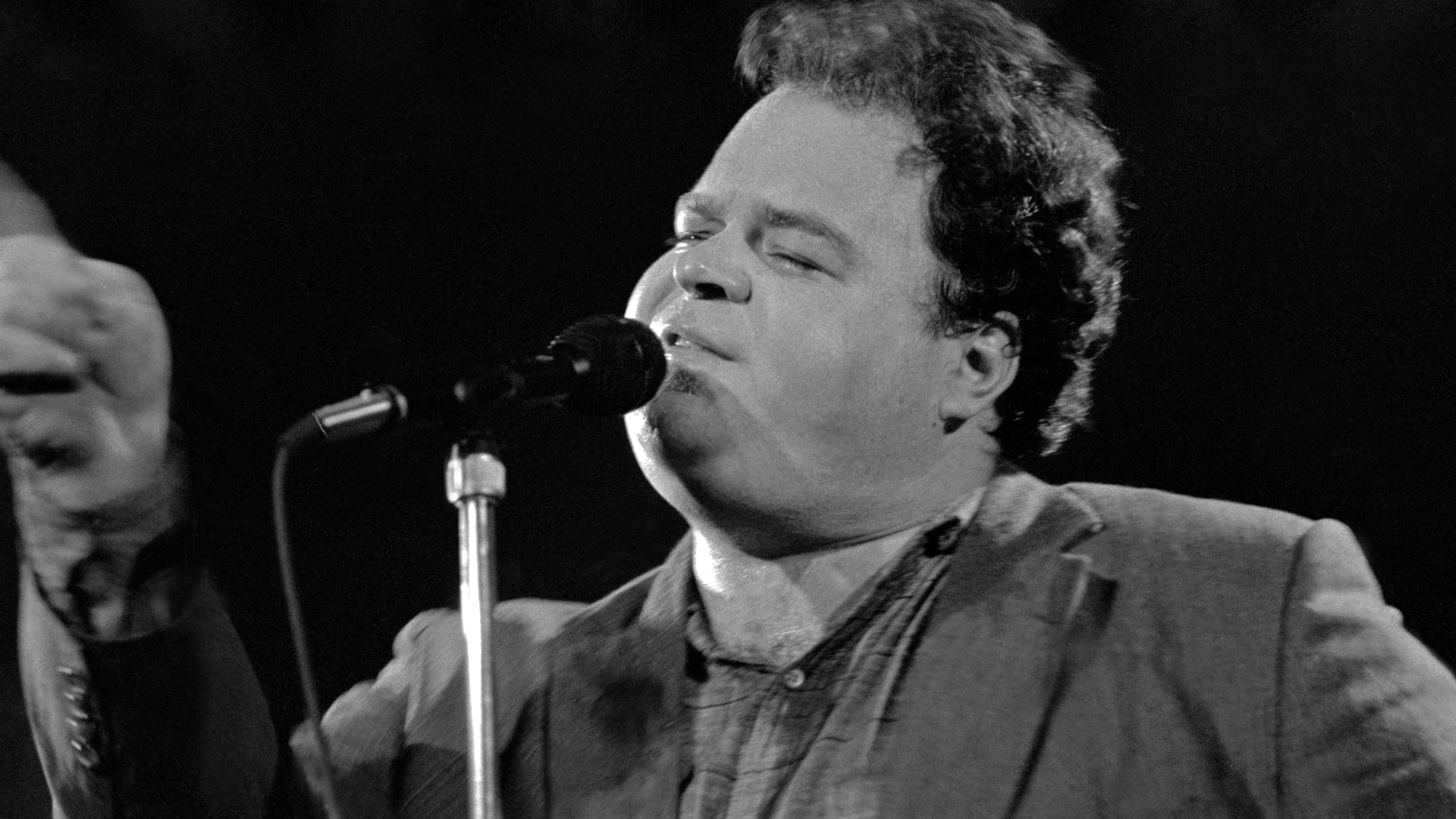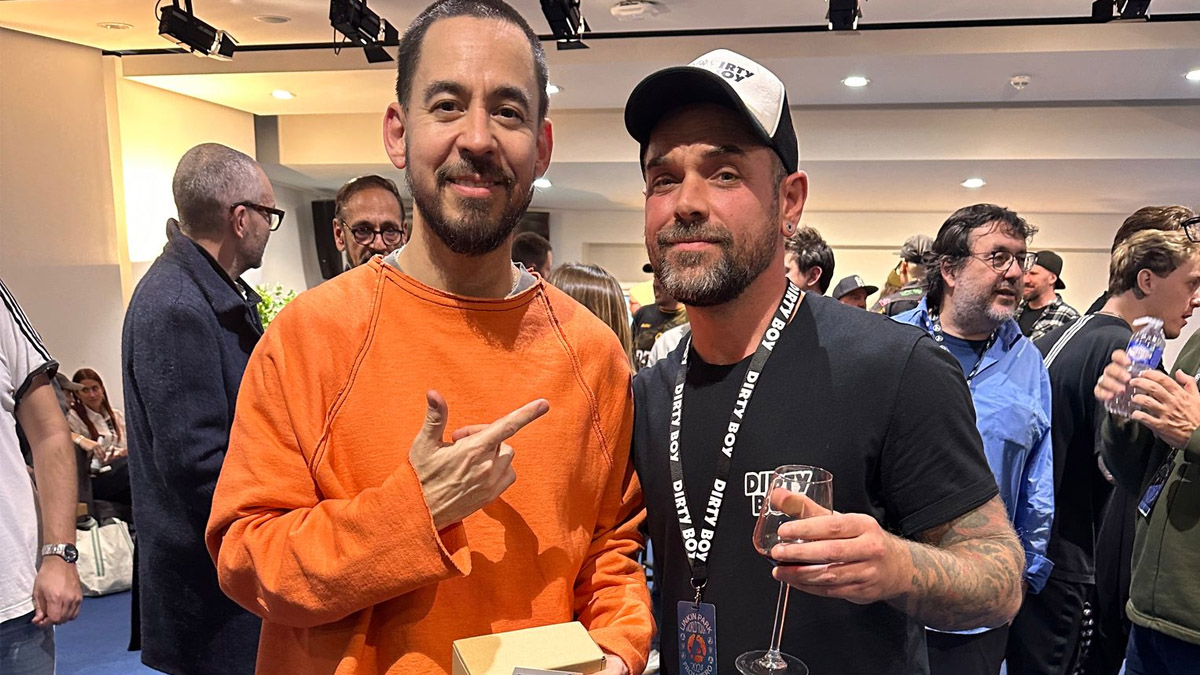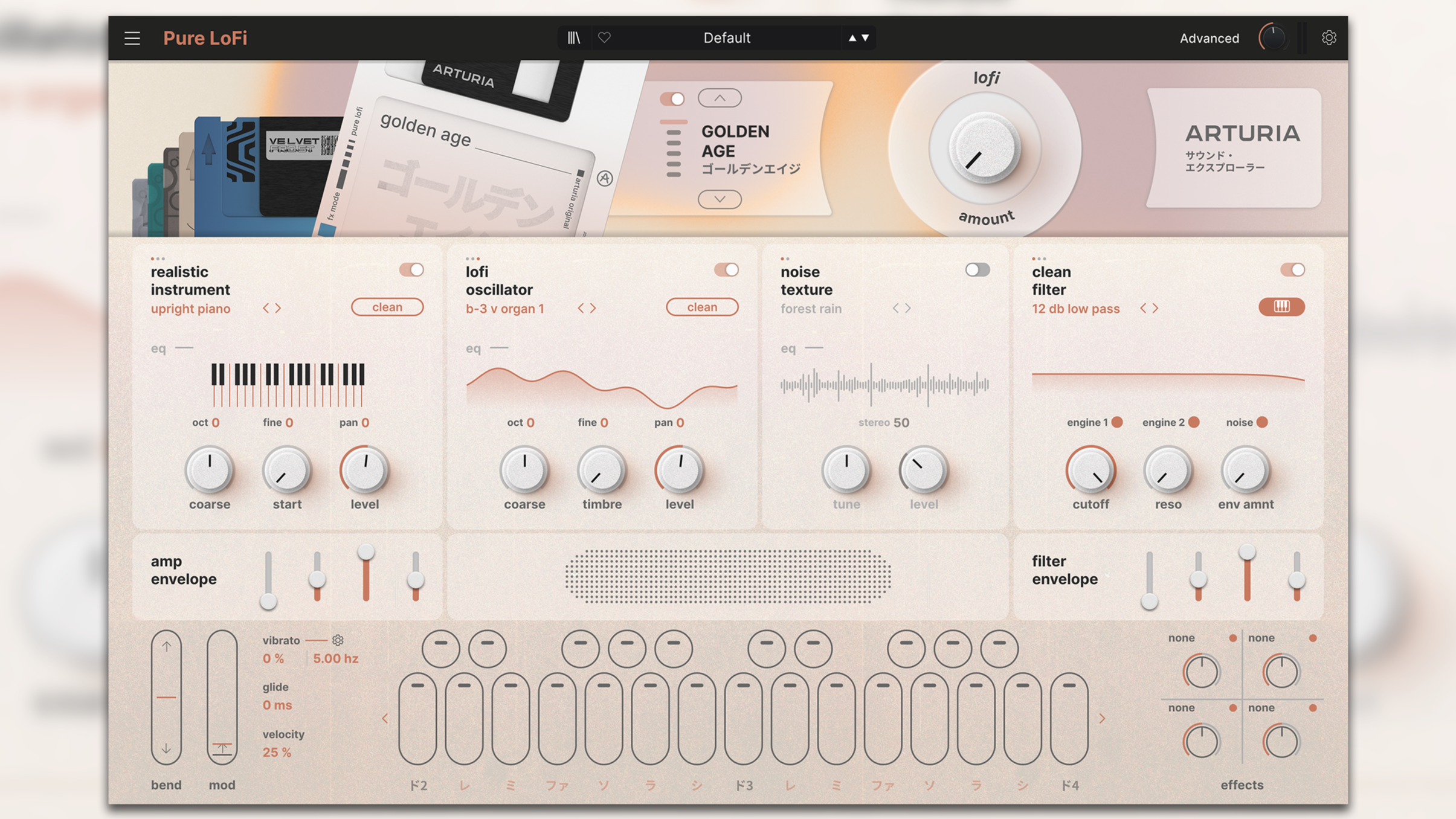Imelda May Mayhem track-by-track
Guitarist Darrel Higham on gear and inspirations
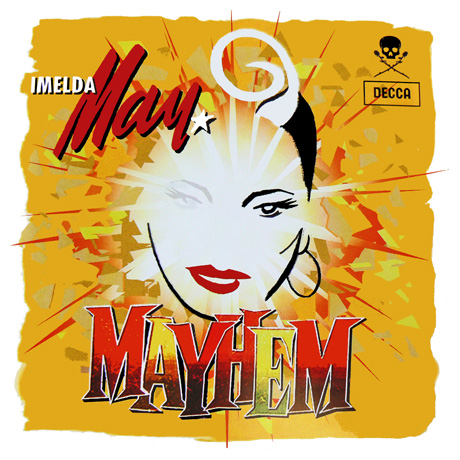
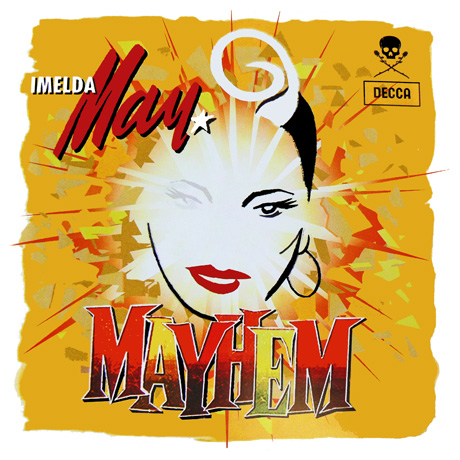
Imelda May's second full album Mayhem was released on 4 October on Decca and we asked guitarist Darrel Higham to talk us through each track. The album is reviewed in the next issue of Guitaristwhich is on sale 27 October.
1. Pulling The Plug
A sultry opening number driven by Al Gare's slapping whale-fiddle, a cool acoustic and a suitably twanging electric melody line. The solo shows off some of Darrel Higham's best techniques.
Darrel Higham: "Probably my favourite track on the album, due to its bass intro and Bo Diddley-esque beat. Al Gare (bass) and Steve Rushton (drums) are quite brilliant on this.
"This needed lots of strong rhythm parts, hence the high level of acoustic (my Favilla, made in 1973) and one more electric rhythm guitar sort of echoing the acoustic. This solo was a one-take-wonder - I love a good banjo roll and feel that the world could always do with another... Peavey Rockinghams through a Peavey Delta Blues (with the one 15-inch speaker) are the main weapons of choice throughout the album, however further overdubs and guitar parts were replaced at Sphere Studios in Battersea, London, during the mixing phase with Andy Wright and Gavin Goldberg."
"I used whatever I could get my hands on during this period - my Gretsch guitars (a White Falcon and a US custom shop 6120) and an old Telecaster belonging to Andy. The album was recorded at a studio I co-own own in Hampshire called Embassy Studio."
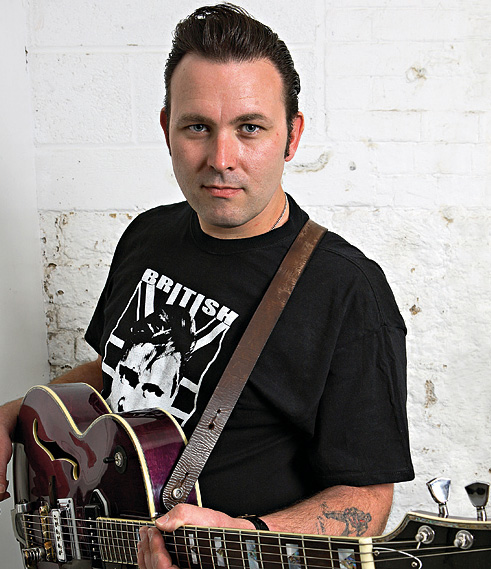
Darrel Higham (c) Future/Mick Taylor
Get the MusicRadar Newsletter
Want all the hottest music and gear news, reviews, deals, features and more, direct to your inbox? Sign up here.
2. Psycho
A sumptuous mix of contemporary swagger and fifties flavour, the chorus is catchier than a cold in a nursery. Darrel nods towards both Vic Flick and Duane Eddy during the Bigbsy-bending lead break.
"This track took awhile to gel. We'd been gigging it for ages and on early versions I played a six-string baritone guitar. However, it wasn't working for our ears and felt it needed more of a jangly hook to mesh it altogether. I just had to spend a bit more brain-time on it. The solo was tortuous as it's a rhythm that I find hard to play to so I just decided to keep it very simple and, hopefully, relatively tuneful.
"Most of the effects on the solos came directly from my little Zoom G2 pedal that I use onstage. I mainly use an ambient setting which gives a nice full sound. I've just bought one of those Danelectro Reel Echo things and that gives a masterful vintage echo for a few songs in our set. The Zoom is such a versatile pedal and I've used them for many years. Terrific value as well.
"That's our Border Collie, Alf, growling on the end of the track. He's a star."
3. Mayhem
Backed up by a brilliant video, the title track tells the story of a rocky love affair that ends in tragedy...or does it? Imelda works wonders fitting in streams of lyrics whilst keeping the emotion up, before Darrel steps on a fuzz box and all hell breaks loose.
"Another track that took awhile for me to find something that really worked to the terrific groove laid down by Al and Steve. Imelda came up with the main intro riff on her little six-string Ukulele. The solo was another - like so many on this album - that evolved from earlier versions.
"I'd been trying an octave thing on the two E strings, a la Johnny Burnette, but it wasn't working. I felt this really needed a tough guitar hook and sort of stumbled upon a variation on the boogie pattern that fitted in nicely. Again, like Psycho, we'd been playing this live for awhile and I'd been changing the solo every now and then.
"What I ended up with was a proper nod to Eddie Cochran as it's very similar to the one he played on a song called My Babe that was recorded whilst he was over in the UK doing a TV show in 1960. I didn't realise until after we played it back how similar they were, but I'm very glad to have got that obvious influence in as he's such a monumental influence on my playing."
4. Kentish Town Waltz
Another story depicting the trials of young love, this time set in a slowly pulsating 3 / 4 time and accompanied by Dave Priseman's mournful trumpet. A restrained solo that offers whiffs of Scotty Moore is the icing on the cake
"I play my Favilla acoustic on this to flesh out the rhythm. I may have used one of my Gretsches, possibly the 6120 Custom Shop, for the solo, where I relied upon my love of Chet Atkins. Although it's nowhere near as good as the great man, I like to think he'd have approved... I'm a hopeless modern country player, but felt this needed some of that thrown in and so learnt of few riffs that were simple enough for me to remember and they worked a treat! God bless YouTube..."
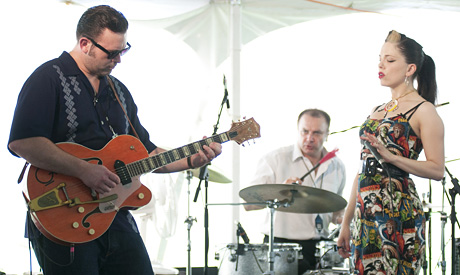
© Denny Mack/Retna Ltd./Corbis
5. All For You
A wonderfully saucy number that evokes smoky bars, women of the street and zoot-suited gangsters all tapping along to a swing hefty enough to rock an elephant to sleep. The muted trumpet keeps things real too.
"I ended up using Brian Setzer's classic solo in Stray Cat Strut as my inspiration. I love that little run-up the bass strings he does at the end of the first solo and decided to nick it for this. Cheers, Brian, I owe you one! I was particularly pleased with the acoustic on this as it drives it all along and gives it a little more of an early 1950s vibe."
6. Eternity
Written by Higham, Imelda sings parts of a duet with herself as a ukulele and acoustic keep the beat. Check it out and see if you can visualise Elvis himself signing along in his customary manner.
"This was written for something else we were working on with Jeff Beck - long before we started recording Mayhem - and Imelda decided to steal it! This was another song that was crying out for some twangy, country Tele-type sounds."
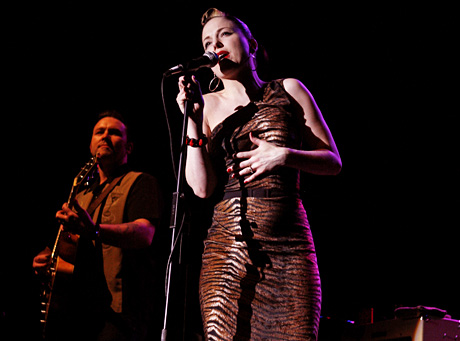
© Brian Hineline/Retna Ltd./Corbis
7. Inside Out
Where muted trumpet and shimmering guitar collide; foot-warming genius. All that's missing is a gaggle of chorus girls clicking their fingers off to the side of the stereo picture.
"Another intro riff that came from Imelda's Ukulele. Dave runs away with this, and rightly so, he's quite magnificent. I just needed to find some nice, bendy chords and used D shapes up and down the neck with open strings to make it more exciting. The guitar helps the swing pattern in the solo and it's a very, very simple thing I'm playing. Less is more and all that. "
8. Proud & Humble
There's more than a taste of the wild west here, with a palm-muted guitar and capo'd acoustic accompanying the vocal delivered in the manner the song title suggests. A smooth trumpet solo injects yet more mood...
"A huge nod to Luther Perkins here [Johnny Cash's first guitarist]. And the acoustic capo'd on the third fret. I put two acoustics on this, both playing in different shapes to beef it up. Another electric rhythm comes in on the chorus, a tad more distorted to help raise the excitement levels, hopefully. Well, it raises my excitement levels, anyway."
9.Sneaky Freak
A truly frightening delve into the mind of the professional stalker. One of the fastest numbers on the album, the music is upbeat and the guitar solo, all pick rakes and finger snaps, is definitely one to try and learn.
"I play a different solo live, for some strange reason, although it's only really the first part that I play differently these days. I suppose you just get used to things in a certain way. This song was written by Imelda for consideration in the film Wild Target. It never made it onto the soundtrack in the end, although Mayhem and Johnny Got A Boom Boom were included.
"This is a good example of how a song was recorded before it was ever played in a gig and over the passing of time I think we've all added different bits to it. I like the solo on this, it's quite aggressive and fits the song well, but I can never how remember to play it live."
10. Bury My Troubles
If we had to pick our favourite song of all here, it'd be this by a whisker. The slinky vibe suits Imelda's voice to a tee, and the muted trumpet and short, sharp guitar chords continue the alley cat fell. Darrel uses a chorus effect to help his solo slither along.
"I used [producer] Andy Wright's old Telecaster on this for the electric rhythm. The solo was already recorded at Embassy on a Rockingham and it's one I'm quite proud of. I suppose you know you've done your job when people hum along with the solo but I know I've done my job as a guitarist properly when I can remember how to play it again months later. Andy added the weird chorus effect on the solo, which I thought was quite cool as it gives it an organ vibe."
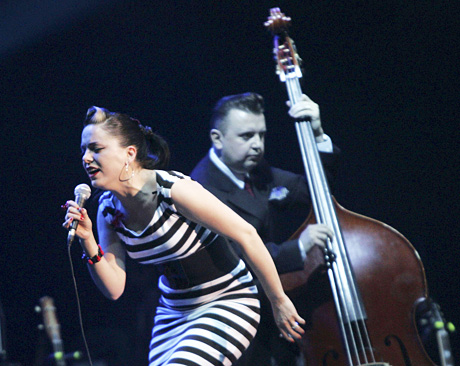
© ABEL ALONSO/epa/Corbis
11. Too Sad To Cry
Boasting an almost New Orleans funeral-style vibe thanks to the mournful intro underneath a marching snare and wobbling guitar, you can feel Imelda's pain as she mourns a lost love. The layered backing vocals are sheer class, and you may well have 'something in your eye' as you listen to this...
"Again, I use octaves in this to get a deep, backing vocal effect. The guitar needed to be really very simple on this, and simple I can do. Another great song by Imelda and she sings the hell out of it."
12. I'm Alive
Infinitely happier, Hawaiian guitar glissandos and harmonics layer emotion upon emotion as Imelda reminds us that she remains within the land of the living.
"Stewart Johnson from The Toy Hearts - one of our favourite bands - played the beautiful steel on this. I just needed to come up with a nice, simple rhythm part to fill it all in. The solo on this is my least favourite on the album as I came up with loads of others that I thought were miles better, but Imelda's the boss and this is the one she chose. There were ructions in the car on the way home, I can tell you..."
13. Let Me Out
Motoring along at a fair old lick, this is arguably the most rockabilly song of all. With a nicely constructed solo full of trills, hammer ons and Bigsby-bent low notes, the chorus will surely see fans screaming the words at the top of their lungs. Nice surprise major chords at the end too.
"This all came together quite quickly, as I recall. The solo needed work as it had to be disciplined and thought out. A bit of Cliff Gallup was needed at the end of the spoken part, I felt. He's another player that is a huge influence on me. "Imelda isn't a purist when it comes to music and so I've always have to go outside of my comfort zones whilst working with her, which makes the job all the more interesting for me.
"Being a bit more disciplined with your playing does have its benefits when it comes to gigs. Creating a strong main riff and then a variation, or slightly more exciting riff for the chorus and then sticking to that throughout the song is a very basic idea that has never lost its power if done right and I try and stick to those principles. Hopefully this one is a future May anthem..."
14. Tainted Love
A unique version of Soft Cell's wedding reception staple, all slapping bass and staccato guitar, Proof, not that it were needed, that Imelda could sing the phone book and make it sound great.
"Al Gare is brilliant on this, with all that slap bass. The guitar influence didn't come from Gloria Jones or Soft Cell but rather a version that was recorded in the early 1980s by British Rockabilly greats, Dave Phillips & The Hot Rod Gang.
"The intro is purely a nod of the head to their version but the rest is all us. Dave's guitarist was a hugely influential player called Mark Harman. Mark had his own band called Restless and they were as popular as the Stray Cats to us kids on the UK Rockin' scene back in the early 80s. He was, and still is, an absolutely wondrous player. However, I decided to put my own stamp on this and was very happy with how it all turned out."Incidentally, the drummer in The Hot Rod Gang, Rob Tyler, later joined my band The Enforcers for a couple of years and I'm a huge fan of his style - very Dickie Harrell."
Simon Bradley is a guitar and especially rock guitar expert who worked for Guitarist magazine and has in the past contributed to world-leading music and guitar titles like MusicRadar (obviously), Guitarist, Guitar World and Louder. What he doesn't know about Brian May's playing and, especially, the Red Special, isn't worth knowing.
“The most musical, unique and dynamic distortion effects I’ve ever used”: Linkin Park reveal the secret weapon behind their From Zero guitar tone – and it was designed by former Poison guitarist Blues Saraceno’s dad
Carlos Santana collapses and then cancels second show “out of an abundance of caution”
